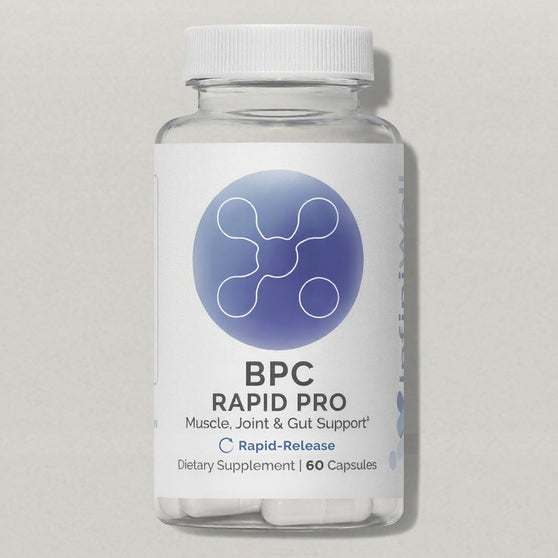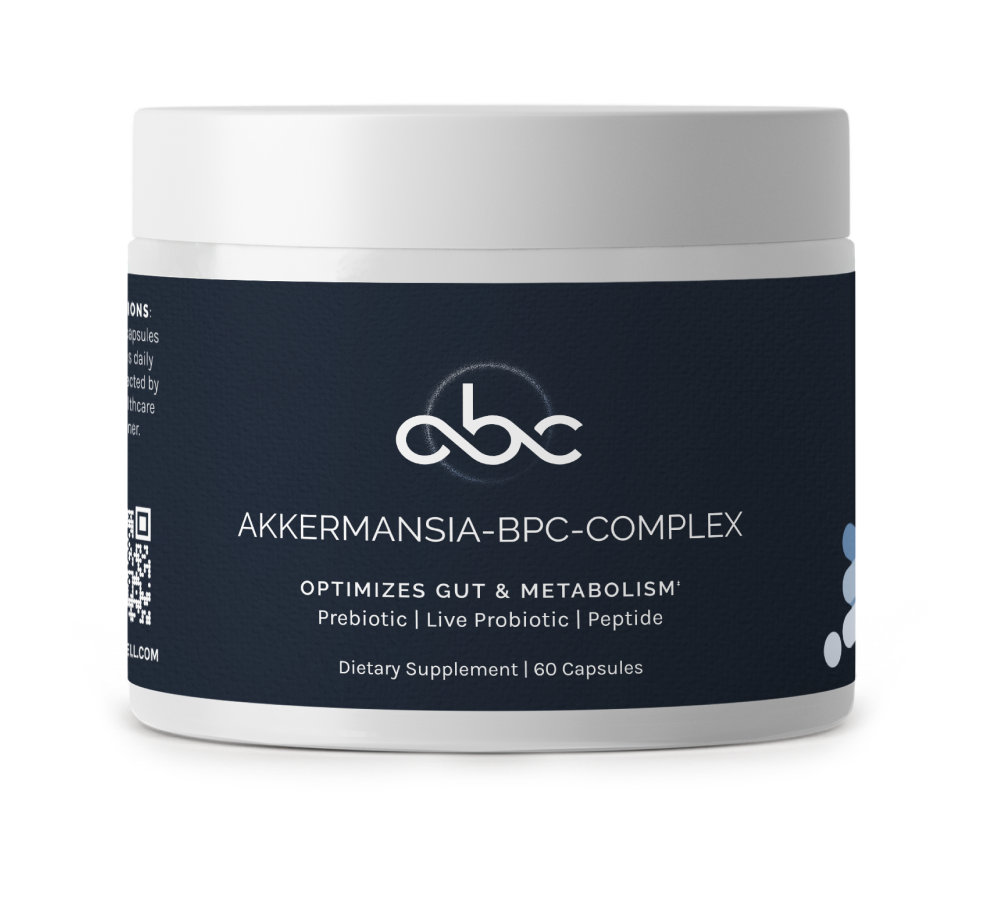What if the best part of your day wasn't your morning coffee, but the moment you opened your eyes—already energized, clear-headed, and ready? That's not fantasy. It's the science of restorative sleep.
While we chase after superfoods, fitness trends, and other techniques to support our health, we often overlook a powerful tool we already possess: deep sleep.
And here's why it matters. Deep sleep isn’t just about rest. It’s when your body gets to work—clearing out cellular debris, repairing itself, and slowing aging. This nightly “cleanup” makes deep sleep essential for both longevity and well-being.
What is deep sleep, and why is it important?
Deep sleep is one of the most critical stages of your sleep cycle and plays a key role in your health and longevity. Unlike light sleep, where you're easily disturbed, deep sleep is when your body enters full restoration mode—repairing muscles, consolidating memory, and rejuvenating your immune system.
Without adequate deep sleep, these essential restorative processes are disrupted, potentially leading to sleep disorders, weakened immunity, and accelerated aging.
The different stages of sleep
Every night, you progress through various sleep stages, including:
- Light sleep
- Rapid eye movement (REM) sleep, where dreaming occurs
- Deep sleep
Your body cycles through these stages multiple times, completing a full sleep cycle roughly every 90 minutes.
During REM sleep, brain activity increases, helping process emotions and memories. Deep sleep, on the other hand, is when your body focuses on cellular repair and immune support. While each stage is important, deep sleep is especially vital for recovery.
How much core sleep do you need?
Core sleep—those vital deep and REM stages—delivers the most physical and mental restoration. Aim for 7-9 hours of sleep each night, including 1-2 hours in the critical deep sleep stage. REM sleep, which occurs later in the sleep cycle, also supports cognitive function and emotional balance.
A good night’s sleep isn’t just about total hours—it’s about reaching these restorative stages for a truly refreshing rest. Without adequate core sleep, you risk sleep deprivation, which can disrupt cognitive performance, weaken immunity, and negatively impact overall health.
The glymphatic system: The brain's waste removal process

At the heart of the brain’s self-cleaning system is the glymphatic system, a network specifically designed to clear out waste. Similar to the lymphatic system, which removes toxins from other parts of the body, the glymphatic system works exclusively within the brain to flush out accumulated metabolic waste, toxic proteins, and other harmful substances that can contribute to neurodegeneration and cognitive decline.
This system is particularly active during the non-REM stages of sleep, when brain cells shrink to create expanded channels, allowing cerebrospinal fluid to flow freely and “power wash” the brain.
To function optimally, the glymphatic system relies on enough sleep—specifically, deep sleep. Achieving at least 1-2 hours of deep sleep each night enables the brain to complete this crucial cleansing process, supporting cognitive health and reducing the risk of accelerated aging.
Without adequate deep sleep, the glymphatic system may be less efficient, allowing waste to accumulate and potentially impact brain health over time.
The link between deep sleep and brain health
A clean brain is a healthy brain. By supporting the glymphatic system through consistent, high-quality sleep, you help maintain memory consolidation, cognitive performance, and overall brain health. This nightly rejuvenation process reduces the risk of age-related neurological issues and supports longevity.
Here’s how it works:
Clearing beta-amyloid and other harmful waste
During deep sleep, the glymphatic system becomes highly active, clearing harmful waste products, including beta-amyloid—a protein linked to memory problems. By ensuring you get enough deep sleep each night, you allow your brain to effectively remove this buildup, reducing the risk of cognitive decline over time.
This waste clearance process helps keep your brain environment healthy, supports clear thinking, and builds resilience against memory issues.
Supporting cognitive performance and memory
Deep sleep isn’t just for physical restoration—it’s also a critical period for memory consolidation and cognitive processing. During this stage, your brain organizes information and strengthens neural connections, which are vital for learning and recall.
When you get enough deep sleep, concepts that seemed challenging the day before often make more sense, and details become easier to recall. Quality deep sleep enhances your ability to connect ideas and see patterns, which benefits problem-solving, creative thinking, and decision-making.
Practical steps to promote restorative sleep
Getting deep, restorative sleep starts with creating an optimal sleep environment and adopting healthy sleep habits. Here are some practical steps for a better night's sleep:
- Stick to a sleep schedule: Same bedtime, same wake time—every day, including weekends. A regular routine helps you fall asleep naturally and wake up refreshed.
- Create a calming bedtime routine: Engage in relaxing activities like reading, gentle stretching, or deep breathing to signal to your body that it’s time to wind down—especially helpful if you have trouble falling asleep.
- Cut off screen time: Power down devices one hour before bed to boost your natural sleep hormones.
- Create a sleep sanctuary: Keep your bedroom cool, dark, and quiet with quality bedding for optimal rest.
- Avoid stimulants and heavy meals before bed: Reduce caffeine intake in the afternoon and evening, and avoid heavy or spicy foods close to bedtime.
- Manage stress and relax before bed: Practice relaxation techniques such as meditation, deep breathing, or progressive muscle relaxation to ease into sleep more easily.
- Address sleep disruptions: If you have sleep disorders or an irregular schedule, consider consulting a healthcare provider to help improve sleep quality.
- Stick to your routine: Consistency is key to reaching deep sleep and REM sleep stages regularly.
Supporting restorative sleep with supplements
For those looking to further support their journey to deep, restorative sleep, certain supplements can help enhance relaxation and promote quality sleep. Supplements can be an effective part of your bedtime routine, particularly when you’re working to establish healthy sleep habits and improve your sleep environment.
While supplements alone can’t replace the benefits of a consistent sleep routine and a healthy sleep environment, the following products from InfiniWell may provide additional support, helping you achieve the deep, restorative sleep essential for long-term health and longevity.
IgNIGHT
InfiniWell’s IgNIGHT supplement can help you ease into a restful night’s sleep, especially if falling asleep is challenging. Its formula is designed to support the body’s natural circadian rhythms, helping you feel more relaxed as you settle down for the night.
Activated Magnesium
Magnesium is known for its calming effects on the nervous system, which can aid in reducing stress and muscle tension. InfiniWell’s Activated Magnesium may help prepare your body for a deep sleep by promoting relaxation and soothing the mind and body.
Calm
InfiniWell’s Calm supplement is crafted to support stress management, helping you unwind before bed. Adding Calm to your evening routine can make it easier to relax, helping you transition smoothly into restorative sleep stages.
The ultimate reset: Prioritizing deep sleep for lifelong brain health
The most effective reset button isn’t on any device; it’s in those precious hours of deep, restorative sleep. The science behind how much sleep you need (7-9 hours) isn’t random—it’s exactly what your brain requires for nightly maintenance. During deep sleep, the glymphatic system clears out cellular waste and strengthens neural pathways, working like a dedicated cleaning crew.
This nightly restoration isn't just about tomorrow's energy—it's your investment in lifelong cognitive health, protecting your mind's clarity and resilience for decades to come.
Deep sleep: Frequently asked questions (FAQs)
How much deep sleep do you need?
Most adults need about 1-2 hours of deep sleep per night, which usually accounts for 15-20% of total sleep time.
Note, however, that individual needs can vary based on age, health status, and other factors. These numbers represent averages for healthy adults, and sleep cycles and percentages can change throughout life.
How much REM sleep do you need?
REM sleep should make up about 20-25% of your sleep, or roughly 1.5 to 2 hours in a standard 7-9 hour sleep period.
What is core sleep?
Core sleep refers to the essential stages of sleep—deep sleep and REM sleep—that are most restorative for your body and mind.
Is core sleep good?
Yes, core sleep is critical for physical recovery, memory consolidation, and overall brain health.
-
SOURCES




















